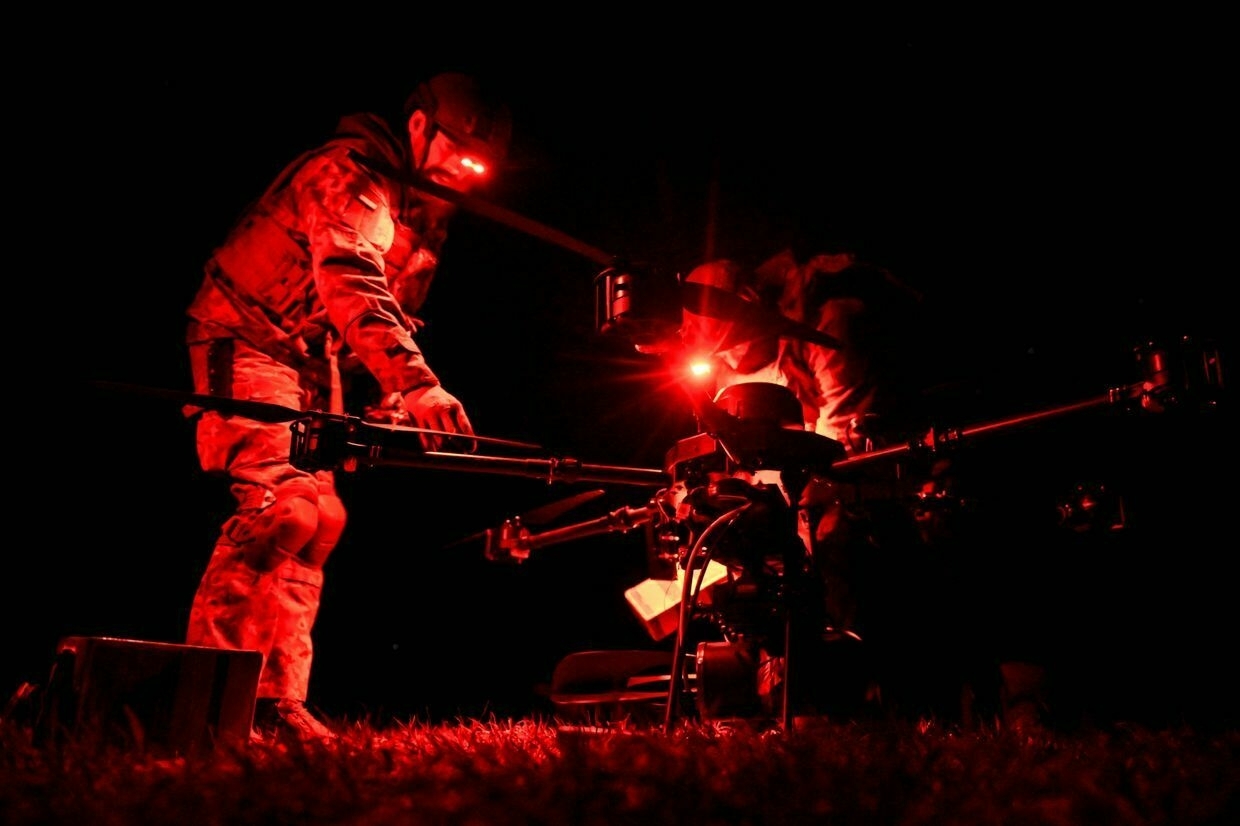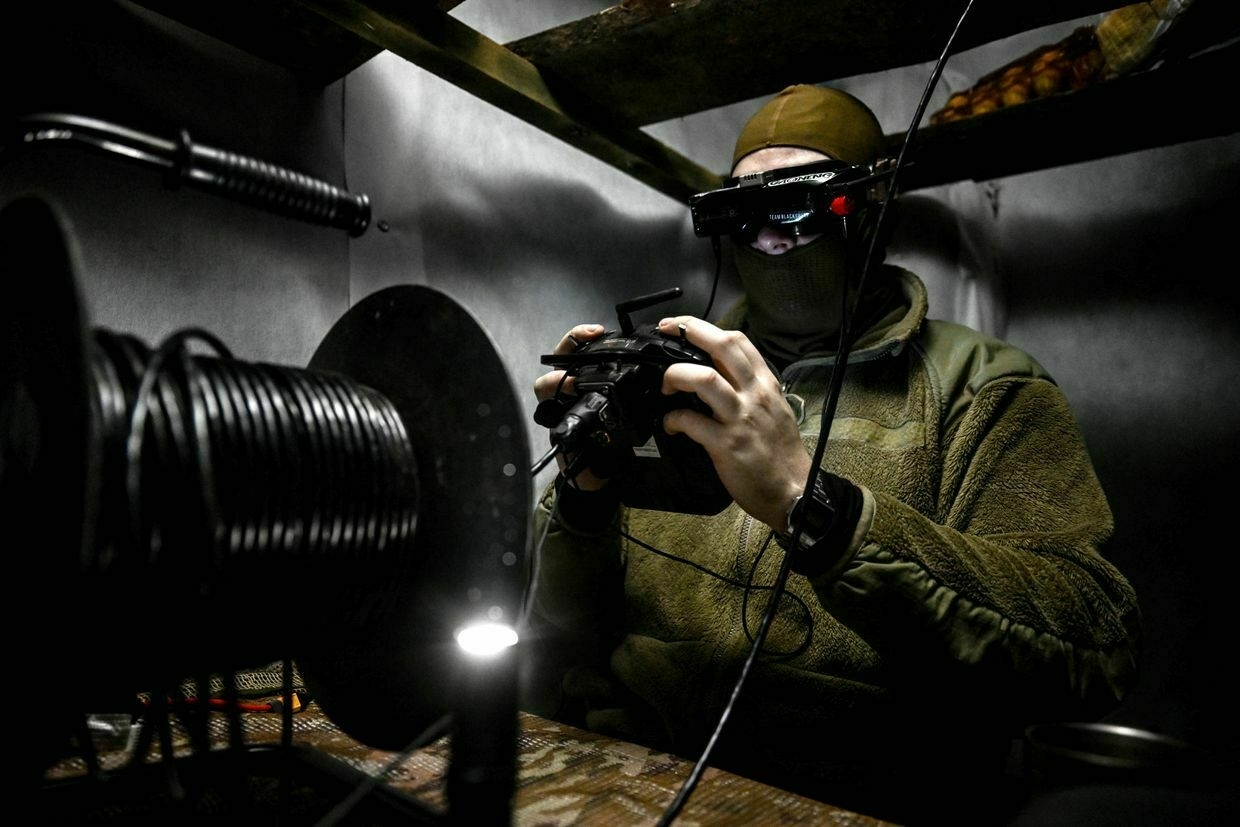
Editor’s Note: The opinions expressed in the op-ed section are those of the authors and do not purport to reflect the views of the Kyiv Independent.
For editorial coverage of Ukraine’s weapons procurement, the country’s Defense Ministry and the scandal-ridden Defense Procurement Agency click on the links below.
- Old guard pushback continues to haunt Ukraine’s arms procurement cleanup
- Defense Minister Umerov dismisses top official who stood up to him
- Deputy defense minister resigns following procurement scandal
Ukraine’s war for survival has created one of the world’s most urgent — and uniquely demanding — defense markets. For foreign companies, the door is open, but only part way. The need is vast: drones, weapons, protective gear and battlefield technology are in constant demand. Yet entry is not automatic. Success depends not only on quality products, but also on navigating complex logistics, passing strict vetting, and aligning with Ukraine’s wartime priorities.
The opportunity is real — but it rewards only those who are serious, transparent, and committed.
Front-line demands
While Ukraine’s defense procurement follows official requirements, foreign firms can still generate demand from the ground up. A proven strategy is to donate or loan equipment to front-line brigades for trial use.
In Ukraine’s fast-moving combat environment, soldiers quickly identify what works. If a new drone, sensor, or vehicle proves its worth, field commanders often advocate for its inclusion in the official procurement catalog.
Once approved by the General Staff and Defense Ministry, the product becomes eligible for purchase by agencies such as the Defense Procurement Agency (DPA).
Battlefield validation is a powerful selling point: a commander’s endorsement can turn a trial kit into a must-have item. While donations involve upfront costs, consider them marketing in the world’s most demanding testing ground. If your gear performs, contracts will follow.
Just be sure to coordinate with the military and collect user feedback.
Clearing the hurdles
If there’s interest from the military, a company must navigate Ukraine’s bureaucratic eligibility requirements.
Procurement has rapidly professionalized since 2022, with a shift toward NATO-oriented standards. One key step is codification: any weapon or equipment must have a NATO Stock Number (NSN) or equivalent national code to be officially procured.
Smart companies should start the codification process early. Securing an NSN or Ukrainian registration code ensures your item can be referenced in contracts and tracked through supply chains.
Even abroad, Ukrainian codification can serve as a quality marker. While not a formal NSN, it signals the product is battlefield-tested — a valuable credential for international buyers.
No Shortcuts
Before winning a contract, foreign companies must be verified as eligible suppliers to Ukraine’s Defense Ministry. The country shifts from ad hoc deals toward a structured whitelist system, coordinated by the Defense Procurement Agency (DPA). The DPA operates a single-window application process that requires all prospective suppliers to complete a detailed questionnaire and submit supporting documents.
This is not a box-ticking exercise. The process involves proper due diligence. The application covers your product range, pricing, production capacity, logistics, and a full suite of legal and corporate documentation. The ministry wants to know who you are, what you offer, and whether you are a credible partner.
A background check follows, including review by the DPA’s internal security unit. Ukraine enforces strict geopolitical red lines: any ties — direct or indirect — to Russia, Belarus, or Iran will disqualify an applicant.
Full ownership transparency is mandatory, including disclosure of beneficial owners and affiliated investors. Subcontractors and shareholders must also be screened.
To strengthen your application, highlight international certifications such as ISO 9001 or AQAP (Allied Quality Assurance Publication). These indicate quality, traceability, and operational discipline — essential in combat conditions.
A clean legal record is also crucial. Companies with histories of fraud, corruption, or contract breaches are unlikely to be approved. While efforts to formalize blacklists have faced legal challenges, the principle stands: only trusted suppliers will be invited to bid.
Preparation matters. Assemble incorporation documents, financial records, compliance certifications, and references from previous government contracts. Gaps or inconsistencies can delay or derail your application.
Once approved and added to the verified suppliers list, your company will receive direct Requests for Proposals when relevant needs arise.
 The Kyiv IndependentRobert Seely
The Kyiv IndependentRobert Seely
Localise or lose out
In February 2025, President Volodymyr Zelensky met with Rheinmetall CEO Armin Papperger and praised the company’s decision to localize production in Ukraine. The message is clear: invest here, build here, fight alongside us.
Zelensky has repeated his vision of Ukraine as a “major military hub” built in partnership with Western defense firms.
For foreign companies, long-term success increasingly depends on establishing a local presence. Joint ventures, assembly lines, R&D centers, or even maintenance and repair facilities can signal intent. Leading firms are already adapting: Rheinmetall is partnering on local production, Baykar is building a drone factory near Kyiv, and BAE Systems is collaborating on domestic assembly.
Localization is now non-negotiable — both strategically and politically. Ukraine needs secure wartime supply lines and seeks technology transfer to build a resilient defense industry. Officials have made it clear: companies looking only to “export and forget” will be replaced by those that commit locally.
Foreign manufacturers should therefore explore options to localize parts of their supply chain. This might include producing components in Ukraine, licensing local factories, or training Ukrainian staff. These steps not only strengthen ties with Kyiv but may also unlock incentives such as special tax conditions or co-financing.
At a recent defense industry forum, Zelensky reiterated his goal that every advanced system used by the Armed Forces should eventually include Ukrainian-made components or support.
To succeed in this market, foreign firms must align with that vision.
In conclusion, Ukraine’s defense market is not just a place to sell. It is a place to stand. The country is fighting for its survival and rebuilding its defense industry at the same time. It welcomes foreign cooperation — but on its own terms: transparency, localization, wartime readiness and shared strategic vision.
Companies that meet these expectations will not only gain access to major procurement opportunities but will also contribute to one of the most consequential defense efforts of our time.
For those who are serious — the door is open. But it leads not to easy profit, but to meaningful partnership.
 The Kyiv IndependentDominic Culverwell
The Kyiv IndependentDominic Culverwell
